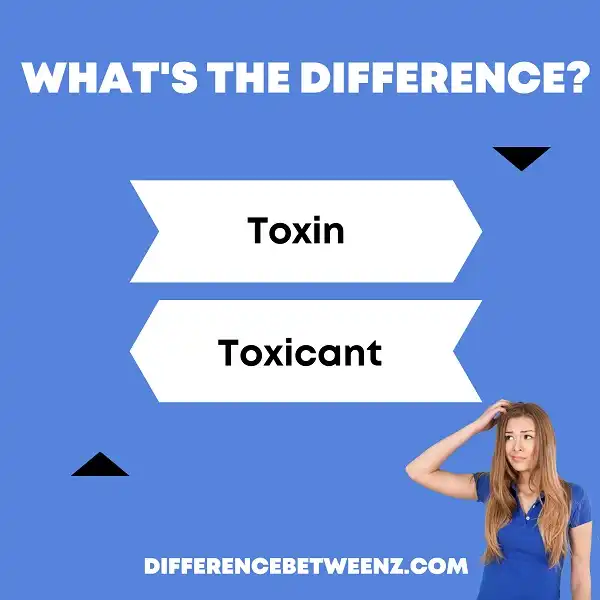There is a big difference between a toxin and a toxicant. A toxin is a natural poisonous substance produced by plants, animals, or microorganisms. Toxicants, on the other hand, are synthetic chemical pollutants that can be harmful to both humans and the environment. It’s important to understand the difference because toxins are often used as ingredients in traditional medicine, while toxicants are used in many everyday products.
What is Toxin?
A toxin is any substance that is capable of causing harm to an organism. Toxins can be found in a variety of different sources, including plants, animals, and even some kinds of bacteria. Toxins are often highly poisonous, and even small amounts can cause serious health problems. Some toxins can be fatal if ingested, inhaled, or absorbed through the skin.
Toxins can also cause allergic reactions and other health problems. There are many different types of toxins, and they can have a variety of different effects on the body. Toxins are a major public health concern, and efforts are ongoing to develop safer methods for handling and disposing of them.
What is Toxicant?
Toxicant is any substance that has the potential to cause harm to an organism. Toxicants can be found in both natural and man-made products, and they can enter the body through inhalation, ingestion, or skin contact. Some toxicants are acutely toxic, meaning they can cause harm at relatively low doses.
Others are chronically toxic, meaning they may not cause immediate harm but can still lead to long-term adverse effects. Toxicants can affect multiple systems within the body, and they can be particularly dangerous to developing fetuses and young children. Because of this, it is important to be aware of the potential risks posed by toxicants and take steps to avoid exposure when possible.
Difference between Toxin and Toxicant
Toxins are poisonous substances that are produced naturally by organisms in order to kill or harm other organisms. Toxins can be found in a wide variety of plants and animals, and they can have a range of effects on the human body, from causing minor irritation to causing death.
- Toxics, on the other hand, are poisonous substances that are not produced naturally but are created through human activity. Toxics can come from a variety of sources, including factories, power plants, and automobiles.
- Toxics can also have a range of effects on the human body, depending on the substance and the amount that is exposure. In general, toxins are more dangerous than toxics because they are more potent and less likely to be diluted before they reach humans.
- Toxics can also be more dangerous because they can build up in the environment over time, whereas toxins are typically broken down quickly by natural processes.
Conclusion
Although the words toxin and toxicant are often used interchangeably, they actually have different meanings. A toxin is a poisonous substance that is produced by a living organism, while a toxicant is any chemical or substance that can cause toxicity in an organism. It’s important to be aware of the difference between these two terms because they are often used incorrectly and can lead to confusion. When talking about toxins and toxicants, it’s important to know which one you are referring to so that you can provide accurate information to others.


